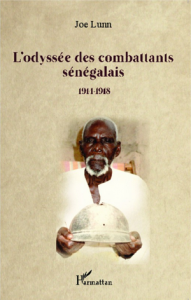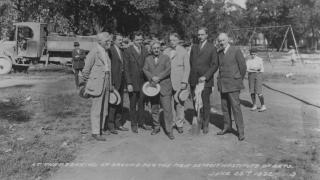

Joe Lunn had read a lot of World War I stories during his time as a modern European and African history student. But he had never read anything like the stories these soldiers told him.
“You would get with these old men and have very intimate conversations,” Lunn said, who interviewed 85 Senegalese veterans in the early 1980s as part of his dissertation work. “They were all near the end of their lives. It was a way for them to reassess what their lives had been about.”
Lunn chronicled their stories in his book, “Memoirs of the Maelstrom: A Senegalese Oral History of the First World War.” The book was the first of its kind when it debuted in 1999, the first to tell World War I stories through the eyes of African soldiers.
“Whenever the Africans were talked about, it was the French speaking for them,” Lunn said. “What was important about this work was that these were African voices contributing to the conversation about what the war was like. And what they had to say about the war and about French rule in Africa was often very different from what the French colonial community had to say.”
Now, French publisher L’Harmattan has brought the story to a new audience. “L'odyssée des combattants Sénégalais, 1914-1918,” the French translation of Lunn’s book, was published in January.
Lunn said over the years he heard from countless non-English-speaking French and Senegalese who expressed interest in the book. But a language barrier kept them from reading about their own history.
“This translation is making the memoirs of the war, or at least a fragment of them, accessible for the grandchildren and great grandchildren of these men,” he said.
Interest in the topic has grown in Europe and Western Africa in the last year, Lunn said. He has been invited to give presentations in Paris, Berlin and Frankfurt as countries commemorate the centennial of the start of the war.
“Their stories are a contribution to both Senegalese and African history, as well as to the French and the broader history of war,” he said.
Lunn currently is at work on a book about the soldiers’ lasting legacy. “African Voices from the Great War: An Anthology of Senegalese Soldiers’ Life Histories” will explore in detail the life histories of 25 soldiers.




